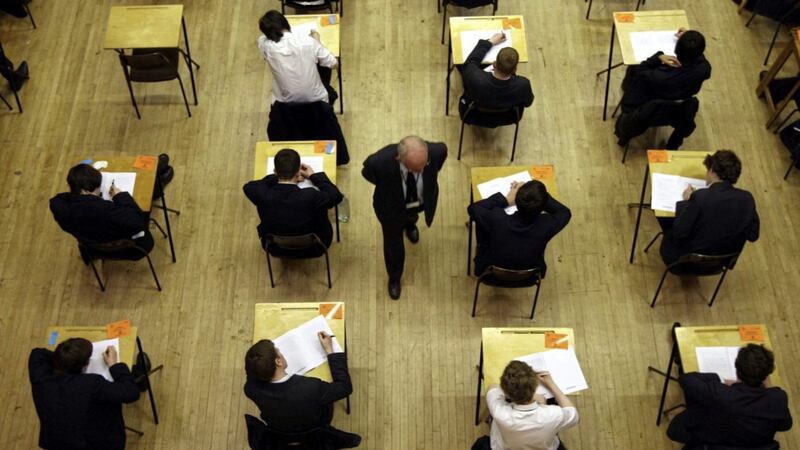GCSEs, AS-levels and A-levels have been cancelled for a second year over concerns young people have missed too much classroom time.
Education Minister Peter Weir said exams could not proceed the way they were planned.
Hundreds of pupils were due to sit some GCSEs next week.
Both the winter and summer series have been cancelled.
While it has been confirmed that teachers' grades will be used in England, there has been no similar decision in the north.
The minister will be keen to avoid the chaos of last year when thousands of pupils were downgraded, before being awarded higher grades.
Mr Weir yesterday told the assembly that all schools would be required to provide remote learning at home to pupils rather than face-to-face teaching until the half term break in mid-February.
Vulnerable pupils and children of key workers will have access to schools for supervised learning.
The assembly was also told:
:: Remote learning and removal of face-to-face teaching should be temporary
:: Special schools will remain open
:: Provision in lieu of free school meals will be made to children entitled while normally in school
:: Childcare settings, including those in primary schools, will stay open and childminders can also continue
Mr Weir said these measures did "not suggest that schools are no longer safe places for young people".
He said limiting attendance was about reducing the number of contacts with people in other households.
However, Chief Scientific Officer Professor Ian Young yesterday said children were playing a larger role in transmission of Covid-19.
A significant number of outbreaks had been associated with schools, he said.
Mr Weir said any disruption to schooling for a significant period would have a devastating impact on children's educational opportunities and future prospects, as well as being damaging to their mental health and well-being.
No matter how well managed, removal of face-to-face learning and its replacement with remote learning impacted on children's educational experience, with a disproportionate impact on disadvantaged groups and vulnerable, he said.
He added that it should, therefore, be only contemplated as a last resort in extreme public health circumstances.
"I now feel we have reached a point where, while I still believe examinations are the most appropriate and fairest awarding methodology, with a further six weeks of remote learning having to be imposed, we cannot continued with exams in the way that was planned," Mr Weir said.
"I have therefore decided all GCSE, AS and A2 exams due to take place in January, February, May and June will be cancelled. Work will continue on the alternative awarding arrangements and further details will be brought forward as soon as possible."
The NUS-USI student body welcomed the cancellation.
"Not only is the country's infection rate higher than it was when exams were cancelled last summer, but this year's cohort have had an extremely stressful academic year," it said.
"It should not have taken so long for the minister to take this step, which is in the best interest of students."
Robert Wilson, regional officer of the Association of School and College Leaders, said disruption to exams and assessment was inevitable.
"ASCL will work with the Department of Education and CCEA to inform thinking as to the best way forward. It is essential that there is public confidence in the system which replaces exams, and that we all pull together to achieve that end," he said.
Meanwhile, FE colleges have taken the decision to postpone all BTEC external examinations for January.








